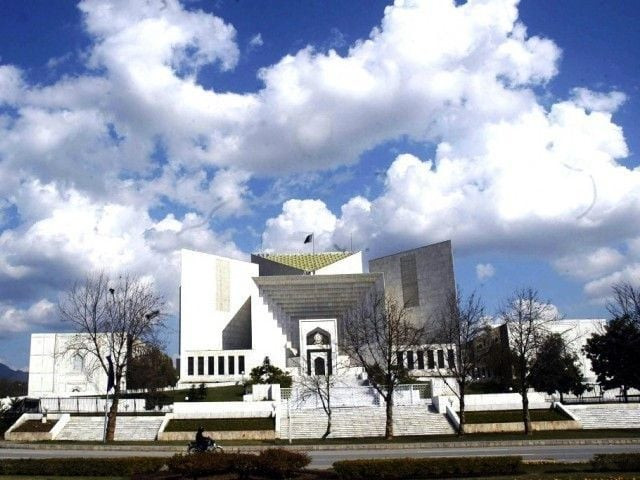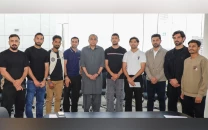Supreme Court laments flawed presentation of evidence
Apex court says litigants face complications as procedure not followed

The country’s top court has observed that the proper procedure for presenting evidence in courts was often not followed, creating unnecessary complications for litigants.
“We have noted that copies of documents, having no concern with the counsel, are often tendered in evidence through a simple statement of the counsel but without administering an oath to him and without him testifying, especially in the province of Punjab,” read a three-page order authored by Justice Qazi Faez Isa.
A division bench of the apex court headed by Justice Isa noted that ordinarily, documents were produced through a witness who testified on oath and who might be cross-examined by the other side.
“However, there are exceptions with regard to facts which need not be proved; these are those which the court will take judicial notice of under Article 111 of the Qanun-e-Shahdat Order, 1984 and are mentioned in Article 112, and facts which are admitted (Article 113, Qanun-e-Shahdat Order, 1984)."
The court was hearing the matter of a suit filed by the predecessor-in-interest of the appellants, Manzoor Hussain, seeking pre-emption of two kanals and 19 marlas of land sold on May 5, 2001.
The suit was dismissed by the trial court on November 27, 2006 on the ground that there were material contradictions in the testimony of the plaintiff’s witnesses. However, an appeal was allowed by the district judge Chakwal on February 25, 2008 and the suit was decreed. Thereafter, the respondent (purchaser) invoked the revisional jurisdiction of the high court and the judge of the Rawalpindi bench of the Lahore High Court on October 14, 2014 allowed it on the grounds that the pre-emptor had failed to establish delivery or receipt of the Talb-i-Ishhad notice and the postman who took the notice for delivery was not produced. Consequently, the pre-emption suit filed by Manzoor Hussain was again dismissed.
The apex court noted that as the respondent had denied the receipt of the Talb-i-Ishhad notice, it was necessary for the plaintiff to have established its delivery to the respondent or its receipt.
“The respondent was not confronted with the acknowledgement receipt to establish that the respondent had received the said notice,” the order read.
“Even if it is accepted that the pre-emptor’s counsel had received back the acknowledgement receipt, it would still not establish that the addressee (the respondent) had received it.”
The court also noted that the postman was also not produced to establish the delivery of Talb-i-Ishhad notice.
The apex court has repeatedly held the necessity to do this to establish the delivery of such notices. "Therefore, there was nothing on record to establish that Talb-i-Ishhad notice was delivered to or received by the respondent, who had denied receiving it, and having failed to establish the delivery/receipt of the said notice the pre-emption suit could not succeed."
The court noted that copies of the acknowledgement receipt, aks shajarah kishtwar, registered post receipt, mutation and jamabandi for the year 2000-2001 were produced and exhibited by the pre-emptor’s counsel, but without him testifying.
The order further read that the acknowledgement receipt was stated to have been signed when the envelope said to contain the Talb-i-Ishhad notice was purportedly received by the respondent. However, the respondent had not admitted receipt of the notice. Therefore, the acknowledgement receipt could not be stated to be an admitted document and did not constitute an admitted fact.
The court also noted that the counsel had furnished the copies of all five documents, which were produced by him.
“The Qanun-e-Shahadat Order, 1984 explicitly sets out the documents which must be produced in original, which in the present case would be the registered post receipt and acknowledgment receipt and photo copies, that is secondary evidence, could only be produced as permitted; and as regards extracts of official records, that is, the aks shajarah kishtwar, mutation and jamabandi, certified copies thereof had to be tendered in evidence."




1733130350-0/Untitled-design-(76)1733130350-0-208x130.webp)














COMMENTS
Comments are moderated and generally will be posted if they are on-topic and not abusive.
For more information, please see our Comments FAQ